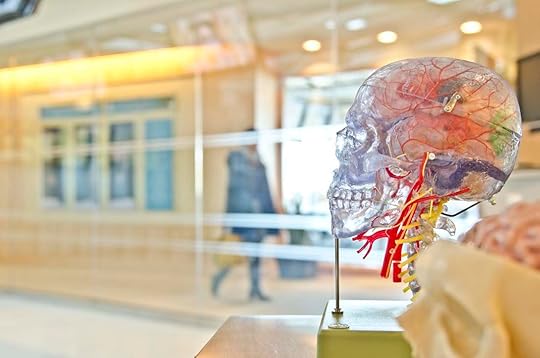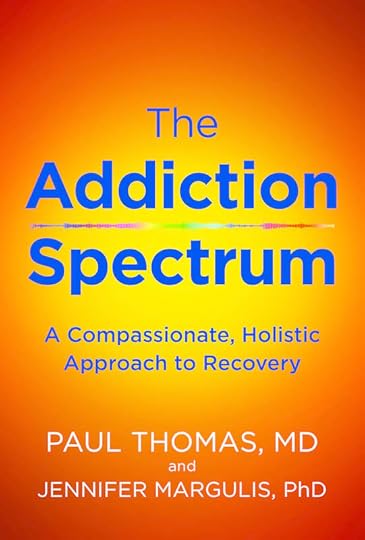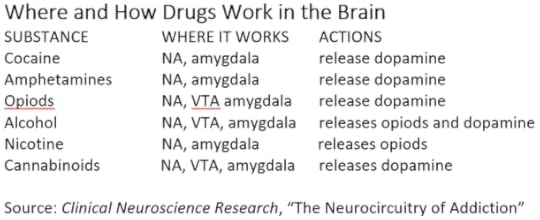How Addiction Affects Your Brain
Addiction affects your brain. But have you ever wondered how?  Photo courtesy of Jesse Orrico via Unsplash
Photo courtesy of Jesse Orrico via Unsplash
I find brain science fascinating and I’ll admit I’m a chemistry geek. Even if you’re not, you may be interested in what drugs, alcohol, and even behavioral addictions can do to you and how addiction can affect your brain.
I run an outpatient addiction clinic based in Portland called Fair Start. At Fair Start we help addicts—mostly young adults—recover from drug addiction.
The majority of our patients are addicted heroin and other opioids. Often they are using several drugs at once, including meth.
Most people know me as a medical doctor. Most people don’t know that I’m also a recovering alcoholic.
Or that my wife, Maiya, is a recovering opioid addict.
While I’ve been in active recovery for 15 years now and I’m not shy about sharing my story, I’m about to go public with all of this in a big way.
I have a new book coming out called The Addiction Spectrum: A Compassionate, Holistic Approach to Recovery. www.Addictionspectrum.com The book will be published by HarperOne on September 4.
The book will be published by HarperOne on September 4.
If you have a young family and you read my last book, co-written with Jennifer Margulis, The Vaccine-Friendly Plan, I think you will want to read this one too. Any parent who is afraid their child might someday get addicted needs the information we present in this book. If you’ve ever wondered about addiction, loved an addict, or suffered from addiction yourself, this book is also for you.
If you’re a public health official, policy maker, doctor, or educator, you also need the knowledge in this book.
So how does addiction affect the brain? No child is born thinking, “I want to grow up to be an addict or alcoholic.”
Even when our using or drinking starts having a significant negative impact on our lives, most of us will deny that a problem even exists. That is one baffling aspects of addiction.
Addiction hijacks a person’s normal common sense. To the outsider, it seems we have no willpower.
But that’s not what’s actually going on.
We now know where most of the substances we misuse act in the brain. What happens in our brains when we experience pleasure? “My dopamine made me do it,” a phrase my colleague and friend Marvin Seppala, a medical doctor who is also the Chief Medical Officer of Hazelton-Betty Ford, often says.
“My dopamine made me do it” is closer to the truth than you might think. Dopamine is a neurotransmitter responsible for the sensation of pleasure.
When we eat, drink water, or make love there is a small release of dopamine. The rewarding nature of this feeling of pleasure has us returning to eat, drink, or make love. These natural activities sustain our lives.
Drugs and alcohol bathe our brains in dopamine, which makes us feel good.
But when we overuse them, our brains get flooded with too much dopamine. The rewarding feeling is so intense that we want that feeling to continue. If we have a tendency towards addiction, our forebrain brain—the part of the brain that controls and moderates our impulse to stop before we hurt ourselves—gets overwhelmed.
Instead of helping us stop, our addicted brain does the opposite: we get intense cravings for more drugs or alcohol, we can think of nothing but the next fix or the next drink. We feel we’ll die without more.
I’m simplifying—there are more neurotransmitters involved than just dopamine—but dopamine is one of the keys.
When rats are given the opportunity to self-administer an electrical stimulation to their brains that releases dopamine to levels seen with cocaine, some will continue to do this without eating or drinking water until they die.
Some humans do the same: binge drinking or tweaking on a meth run that can last until the person collapses in exhaustion or even dies.
I was a binge drinker.
I couldn’t have just one glass.
Once I started drinking I had no off switch. I needed another drink. Addictive substances affect the release and inhibition of dopamine by imitating neurotransmitters and activating receptors in key areas of the brain.
Addictive substances affect the release and inhibition of dopamine by imitating neurotransmitters and activating receptors in key areas of the brain.
Alcohol, opioids, and even cannabis sometimes can suppress the inhibitory action of the GABA neurons, causing an unregulated release of dopamine.
Amphetamines and nicotine directly activate the release of dopamine into the brain.
Cocaine works by blocking the process through which dopamine is removed from synapses, resulting in a continued state of euphoria.
Isn’t it interesting how all these substances actually work on the same receptors, activate the same chemicals, and hence have the potential to produce the same addictive effects?
The problem is not that addicts are seeking pleasure.
The problem is that when you take the desire for dopamine too far, some people can’t stop.
Now that you have a better understanding of how addiction affects the brain, what’s the solution?
In order to heal from addiction, you have to heal your brain.
You have to find non-addictive ways to feel good.
You have to avoid addictive substances that overwhelm your brain with dopamine and replace unhealthy addiction with healthy behavior.
In The Addiction Spectrum we give you an action plan to move you from the severe end of the addiction spectrum to the mild end of the spectrum.
There is a way forward out of addiction. No addict is “hopeless.”
We can end the addiction epidemic.
We can stop people from dying from addiction.
We can all take steps to heal our brains.
Save your spot at The Addiction Summit, a free online event that airs from August 13 to August 19, to find out more. Pre-order a copy of The Addiction Spectrum, the book that will help every person affected by addiction find the way out.
 Photo courtesy of Jesse Orrico via Unsplash
Photo courtesy of Jesse Orrico via Unsplash I find brain science fascinating and I’ll admit I’m a chemistry geek. Even if you’re not, you may be interested in what drugs, alcohol, and even behavioral addictions can do to you and how addiction can affect your brain.
I run an outpatient addiction clinic based in Portland called Fair Start. At Fair Start we help addicts—mostly young adults—recover from drug addiction.
The majority of our patients are addicted heroin and other opioids. Often they are using several drugs at once, including meth.
Most people know me as a medical doctor. Most people don’t know that I’m also a recovering alcoholic.
Or that my wife, Maiya, is a recovering opioid addict.
While I’ve been in active recovery for 15 years now and I’m not shy about sharing my story, I’m about to go public with all of this in a big way.
I have a new book coming out called The Addiction Spectrum: A Compassionate, Holistic Approach to Recovery. www.Addictionspectrum.com
 The book will be published by HarperOne on September 4.
The book will be published by HarperOne on September 4. If you have a young family and you read my last book, co-written with Jennifer Margulis, The Vaccine-Friendly Plan, I think you will want to read this one too. Any parent who is afraid their child might someday get addicted needs the information we present in this book. If you’ve ever wondered about addiction, loved an addict, or suffered from addiction yourself, this book is also for you.
If you’re a public health official, policy maker, doctor, or educator, you also need the knowledge in this book.
So how does addiction affect the brain? No child is born thinking, “I want to grow up to be an addict or alcoholic.”
Even when our using or drinking starts having a significant negative impact on our lives, most of us will deny that a problem even exists. That is one baffling aspects of addiction.
Addiction hijacks a person’s normal common sense. To the outsider, it seems we have no willpower.
But that’s not what’s actually going on.
We now know where most of the substances we misuse act in the brain. What happens in our brains when we experience pleasure? “My dopamine made me do it,” a phrase my colleague and friend Marvin Seppala, a medical doctor who is also the Chief Medical Officer of Hazelton-Betty Ford, often says.
“My dopamine made me do it” is closer to the truth than you might think. Dopamine is a neurotransmitter responsible for the sensation of pleasure.
When we eat, drink water, or make love there is a small release of dopamine. The rewarding nature of this feeling of pleasure has us returning to eat, drink, or make love. These natural activities sustain our lives.
Drugs and alcohol bathe our brains in dopamine, which makes us feel good.
But when we overuse them, our brains get flooded with too much dopamine. The rewarding feeling is so intense that we want that feeling to continue. If we have a tendency towards addiction, our forebrain brain—the part of the brain that controls and moderates our impulse to stop before we hurt ourselves—gets overwhelmed.
Instead of helping us stop, our addicted brain does the opposite: we get intense cravings for more drugs or alcohol, we can think of nothing but the next fix or the next drink. We feel we’ll die without more.
I’m simplifying—there are more neurotransmitters involved than just dopamine—but dopamine is one of the keys.
When rats are given the opportunity to self-administer an electrical stimulation to their brains that releases dopamine to levels seen with cocaine, some will continue to do this without eating or drinking water until they die.
Some humans do the same: binge drinking or tweaking on a meth run that can last until the person collapses in exhaustion or even dies.
I was a binge drinker.
I couldn’t have just one glass.
Once I started drinking I had no off switch. I needed another drink.
 Addictive substances affect the release and inhibition of dopamine by imitating neurotransmitters and activating receptors in key areas of the brain.
Addictive substances affect the release and inhibition of dopamine by imitating neurotransmitters and activating receptors in key areas of the brain.Alcohol, opioids, and even cannabis sometimes can suppress the inhibitory action of the GABA neurons, causing an unregulated release of dopamine.
Amphetamines and nicotine directly activate the release of dopamine into the brain.
Cocaine works by blocking the process through which dopamine is removed from synapses, resulting in a continued state of euphoria.
Isn’t it interesting how all these substances actually work on the same receptors, activate the same chemicals, and hence have the potential to produce the same addictive effects?
The problem is not that addicts are seeking pleasure.
The problem is that when you take the desire for dopamine too far, some people can’t stop.
Now that you have a better understanding of how addiction affects the brain, what’s the solution?
In order to heal from addiction, you have to heal your brain.
You have to find non-addictive ways to feel good.
You have to avoid addictive substances that overwhelm your brain with dopamine and replace unhealthy addiction with healthy behavior.
In The Addiction Spectrum we give you an action plan to move you from the severe end of the addiction spectrum to the mild end of the spectrum.
There is a way forward out of addiction. No addict is “hopeless.”
We can end the addiction epidemic.
We can stop people from dying from addiction.
We can all take steps to heal our brains.
Save your spot at The Addiction Summit, a free online event that airs from August 13 to August 19, to find out more. Pre-order a copy of The Addiction Spectrum, the book that will help every person affected by addiction find the way out.
Published on June 07, 2018 21:22
No comments have been added yet.
Paul Thomas's Blog
- Paul Thomas's profile
- 44 followers
Paul Thomas isn't a Goodreads Author
(yet),
but they
do have a blog,
so here are some recent posts imported from
their feed.



